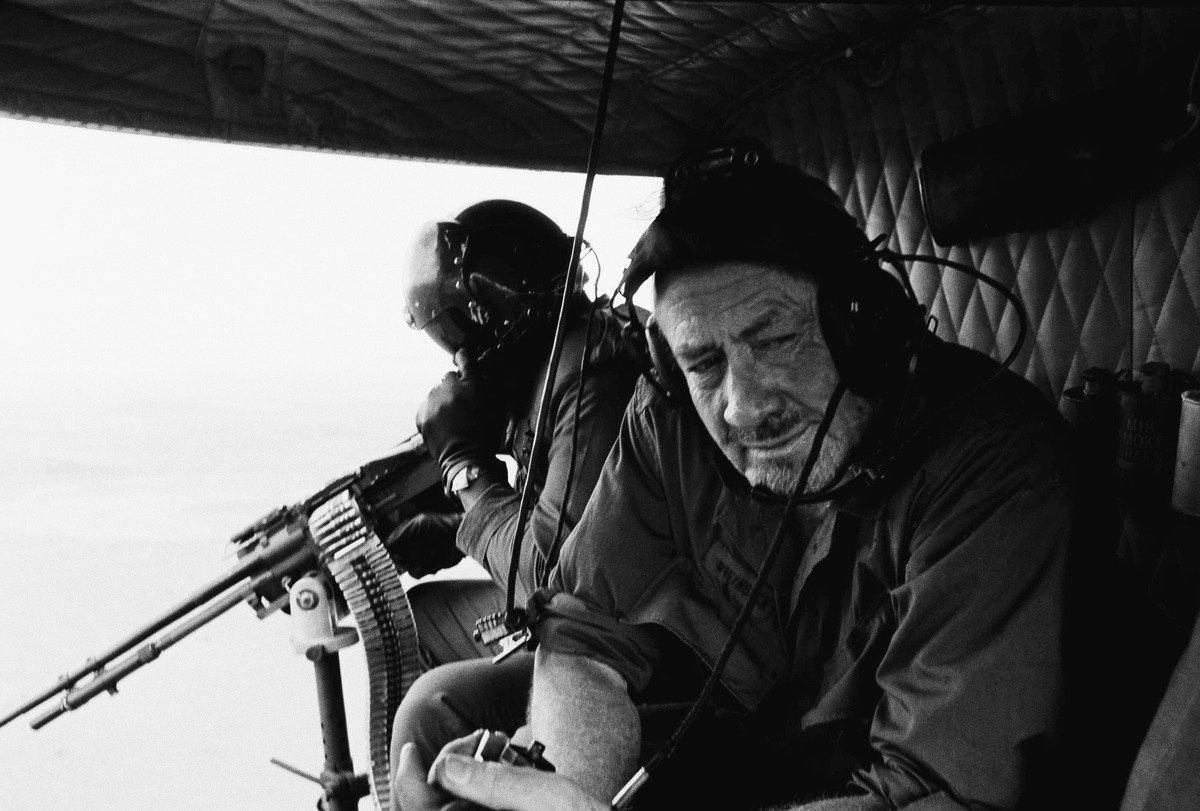John Steinbeck, widely celebrated as one of America’s greatest novelists, embarked on a remarkable journey beyond the realm of literature during World War II. While his literary achievements are well-known, lesser-known is his involvement in the military and his role as a war correspondent. He wrote the book, “The Moon is Down” (1942) and in 1943, at the age of 40, he joined the war effort as a war correspondent for the New York Herald Tribune and worked with the Office of Strategic Services.
As a war correspondent, Steinbeck was embedded with Allied forces in various theaters of war. He reported from North Africa, Italy, and England, capturing the experiences and emotions of soldiers on the front lines. His dispatches provided an intimate and poignant insight into the harsh realities of war, showcasing his empathy and skill in capturing the human condition. During the war, Steinbeck accompanied the commando raids of Douglas Fairbanks Jr.’s Beach Jumpers program, which launched small-unit diversion operations against German-held islands in the Mediterranean. Steinbeck’s wartime experiences deeply influenced his writing and worldview. Witnessing the struggles and sacrifices of ordinary people caught in the turmoil of war inspired him to shed light on the human spirit’s resilience and the enduring strength of communities. Steinbeck returned from the war with a number of wounds from shrapnel and some psychological trauma. His firsthand encounters with soldiers, refugees, and civilians shaped his subsequent works, such as “Cannery Row” (1945). In 1945, Steinbeck received the King Haakon VII Freedom Cross for his literary contributions to the Norwegian resistance movement.
Following the conclusion of World War II, Steinbeck’s experiences continued to resonate in his literary works. His magnum opus “East of Eden” (1952) explore themes of human struggle, social injustice, and the complexities of human nature—themes that Steinbeck had encountered and contemplated during his time as a war correspondent. Once There Was a War is a collection of articles written by John Steinbeck while he was a special war correspondent for the New York Herald Tribune from June to December 1943. It was published in 1958. Steinbeck confesses that he felt ‘a visitor’ to the war, and was uncomfortable knowing that he could go home at any time, while the serving personnel could not.
In September 1964, President Lyndon B. Johnson awarded Steinbeck the Presidential Medal of Freedom. Not satisfied with all the work he’d done and in poor health, he traveled to Vietnam in December 1966 to write about the war raging there. The author was impressed with American war technology, especially the helicopters and the gunship they called “Puff the Magic Dragon”. He thought of the Vietnam War as a heroic venture. Scholar Thomas Barden collected all of the author’s accounts, which constituted his last published writings before his death in 1968, in a new book titled Steinbeck in Vietnam: Dispatches From the War.
“I wish I could tell you about these pilots. They make me sick with envy. They ride their vehicles the way a man controls a fine, well-trained quarter horse. They weave along stream beds, rise like swallows to clear trees, they turn and twist and dip like swifts in the evening. I watch their hands and feet on the controls, the delicacy of the coordination reminds me of the sure and seeming slow hands of (Pablo) Casals on the cello. They are truly musicians’ hands and they play their controls like music and they dance them like ballerinas and they make me jealous because I want so much to do it. Remember your child night dream of perfect flight free and wonderful? It’s like that, and sadly I know I never can. My hands are too old and forgetful to take orders from the command center, which speaks of updrafts and side winds, of drift and shift, or ground fire indicated by a tiny puff or flash, or a hit and all these commands must be obeyed by the musicians hands instantly and automatically. I must take my longing out in admiration and the joy of seeing it. Sorry about that leak of ecstasy, Alicia, but I had to get it out or burst.”
*The views and opinions expressed on this website are solely those of the original authors and contributors. These views and opinions do not necessarily represent those of Spotter Up Magazine, the administrative staff, and/or any/all contributors to this site.
